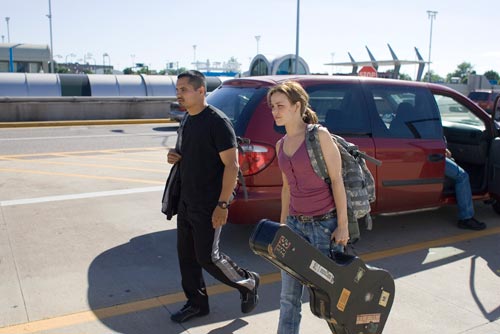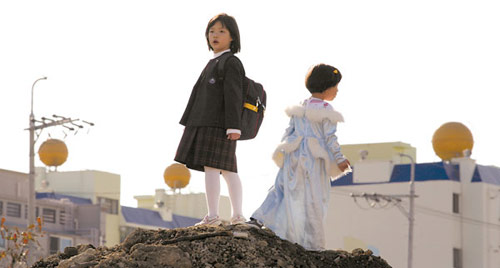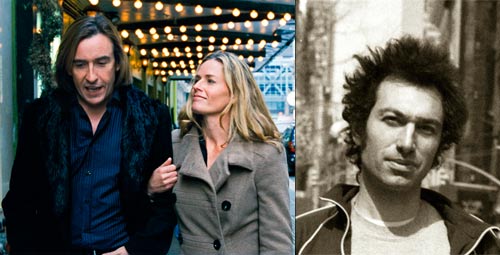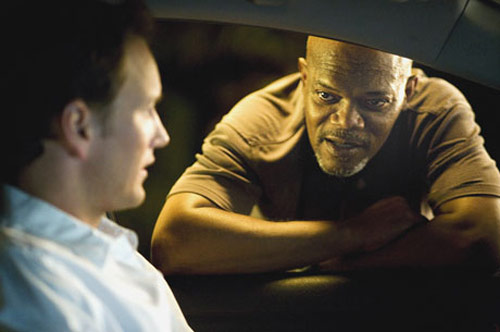
When Tim Robbins isn't twitching or faking an accent, I kind of like him. When his characters clinch their jaws or go all crazy in the head, I can't stop thinking, "Now, what's he supposed to be again?" And by the time I uncock my head, I realize that I've missed some important dialogue.
Point is, he's a normal dude in The Lucky Ones, and it makes all the difference. Three American soldiers are on leave from Iraq -- Rachel McAdams, Michael Peña, and Robbins -- and the plot conspires to keep them in the same car as they drive across the US en route to home and loved ones. It helps, therefore, that all three have enjoyable personalities. They're not in the least bit twitchy.
It's clear from the start, from the way these soldiers begrudgingly embark on a road trip in the face of air traffic hiccups, from the way the hand of the screenwriter keeps appearing like the wires on a flying saucer, that the film is a lightweight, quite a change from Neil Burger's previous film, a heavy confection called The Illusionist. But the light touch fits the story, which favors the simple emotional bonding of three people who don't know each other over the trite wartime lessons of movies like Stop-Loss. One of Burger's almost invisible successes is designing his characters as a balanced contrast of ages, genders, and attitudes linked only (only?) by common experience in Iraq and the scars they have to show for it. And a need to get across the country.
The film shifts smoothly between light comedy and light tragedy -- thoughts of suicide are very real one minute but something to chuckle about later -- much more easily than it navigates the hairpin turns of the plot. When you need to plant an RV full of beautiful sex workers at a rest stop, or when you need a tornado to cure a character's impotence, you've lost your purchase as a screenwriter.
But the three road-trippers somehow remain true despite the many elbows in their highway, and even the melancholy ending feels natural and poignant, which half-way through I would have thought to be impossible. The film avoids simple bromides about the war, families, or the soldiers who oscillate between them, yet in a subtle way the conclusion has an attitude toward all three.







